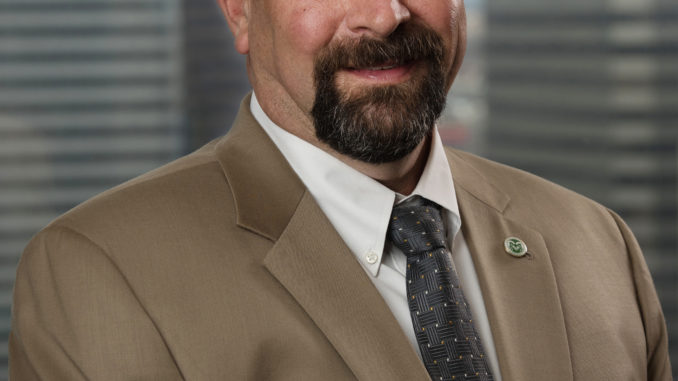
This Letter to the Editor is solely the opinion of its author.
It does not reflect the opinion of this newspaper.
By Dr. Tony Frank
Chancellor, Colorado State University System
Most Americans don’t like the way we talk to each other these days, but no one seems to know how to fix it. The Colorado State University System proposes we start at the most obvious point: Let’s talk about it.
In that spirit, the CSU System launched a new initiative this fall: Your Voice. Your Vote. Your Rights. While we launched the initiative ahead of the election, it’s not just about what’s happening in November 2020. The idea is to focus on free speech and civic discourse and encourage people – during election seasons and at all times – to better understand their hard-won rights and the responsibilities that go along with them. Let’s talk about how we talk to each other. Let’s talk about free speech, and what the experience of free speech feels like in real life. Let’s talk about what it means to be an informed and engaged community member.
Why does it matter? A Pew Research study last year documented what most of us already know: Political discourse in this country has become increasingly negative, hyperbolic, and less based in reality. But the problem isn’t just with candidates debating on a stage or families discussing the election; the negativity and frustration have spilled over into our ability to talk publicly and productively about all sorts of sensitive and nuanced topics, i.e. pretty much everything that matters to our communities and society.
During my years as a university president, I had a short answer for those who wanted the institution to make someone else stop saying something dumb or offensive: “You really don’t want the university president – or any authority figure – deciding who gets to talk and who doesn’t.” Heading down that road means giving up, once and for all, on the American experiment, which, with all its struggles and disappointments, is still something that most of us want to see preserved. When speech is offensive, harmful, and morally wrong – which it can be – the Constitution and 250 years of constitutional law tell us that the best and most powerful counter to it is more speech.
But how does that feel, in real life, to an 18-year-old confronting racist speech on a campus where they already struggled to feel safe? How does it feel to descendants of the Nazi Holocaust when a swastika is scrawled on the sidewalk? How does it feel to an older white guy who’s dedicated his life to teaching to be told that nothing he has to contribute matters anymore? How does it feel to the invited campus speaker who finds herself shouted down in an auditorium by people with opposing views?
Each of these situations potentially could lead to demands that someone be punished, silenced, sanctioned. And honestly, looking at specific circumstances, I could make a personal argument for doing so in nearly every case – because sometimes these situations cut deep and inflame my sense of humanity, of fundamental decency, of basic right and wrong.
But then, I think about the beauty of that First Amendment to the Constitution – the Amendment that ensured civil rights marchers of the 1960s had a voice under the law that state and local governments wanted to deny them. The Amendment that in the 1990s allowed CSU’s women’s softball team to fight for equitable treatment – the beginnings of a transformation (including a landmark lawsuit) that led CSU to become a model of Title IX compliance nationwide. The Amendment that gave people the OK to challenge me and the status quo when I was a campus president, in their drive to make the University better.
Free speech is the heart of higher education, and universities have a unique and important role to play in leading tough conversations around critical societal issues. That’s the nature of what we do – we argue about ideas, we debate theories, we recognize that truth can be malleable, evolving along with the research and knowledge we exist to conduct. We sometimes fail in actuality; we don’t always function as a model of civil and respectful discourse. But no institution in our society is as suited to attempt to repair our broken discourse as a university.
For all these reasons, we invite Coloradans to join in Your Voice. Your Vote. Your Rights – and to spend time thinking about what these deeply held American values really mean to us today.
Support Northern Colorado Journalism
Show your support for North Forty News by helping us produce more content. It's a kind and simple gesture that will help us continue to bring more content to you.
BONUS - Donors get a link in their receipt to sign up for our once-per-week instant text messaging alert. Get your e-copy of North Forty News the moment it is released!
Click to Donate
